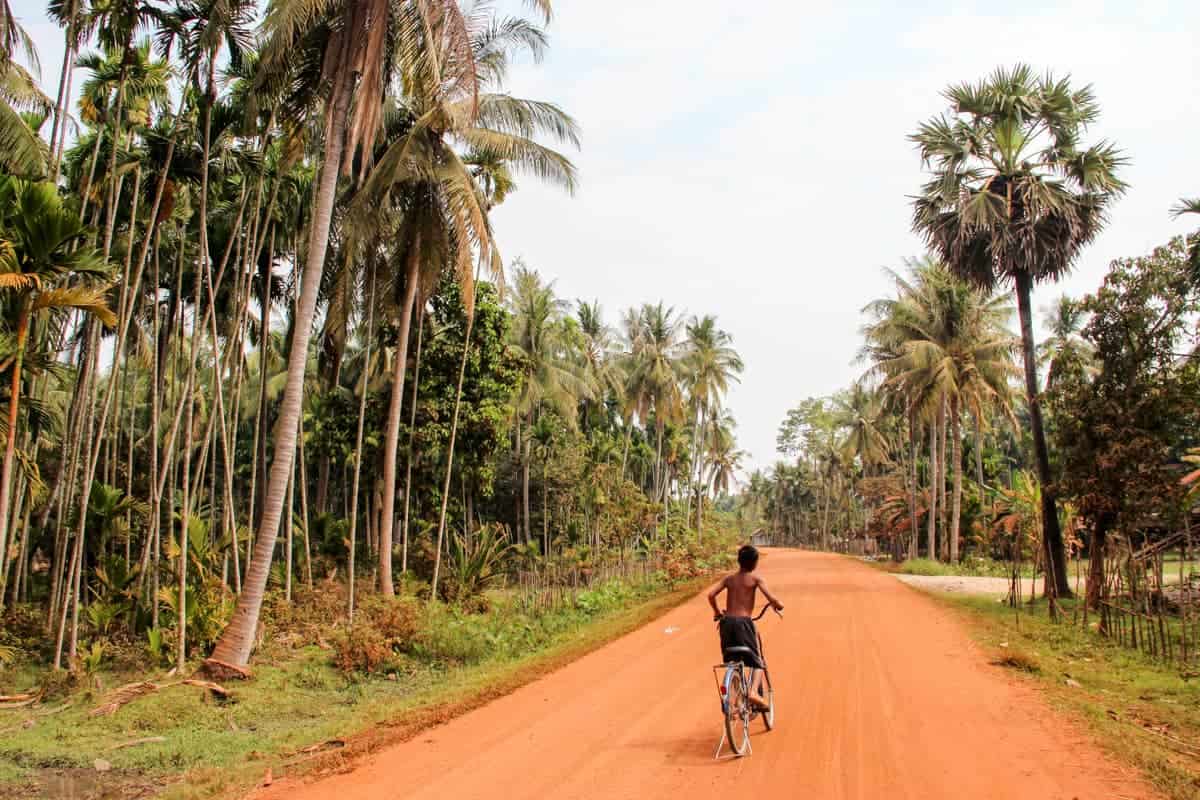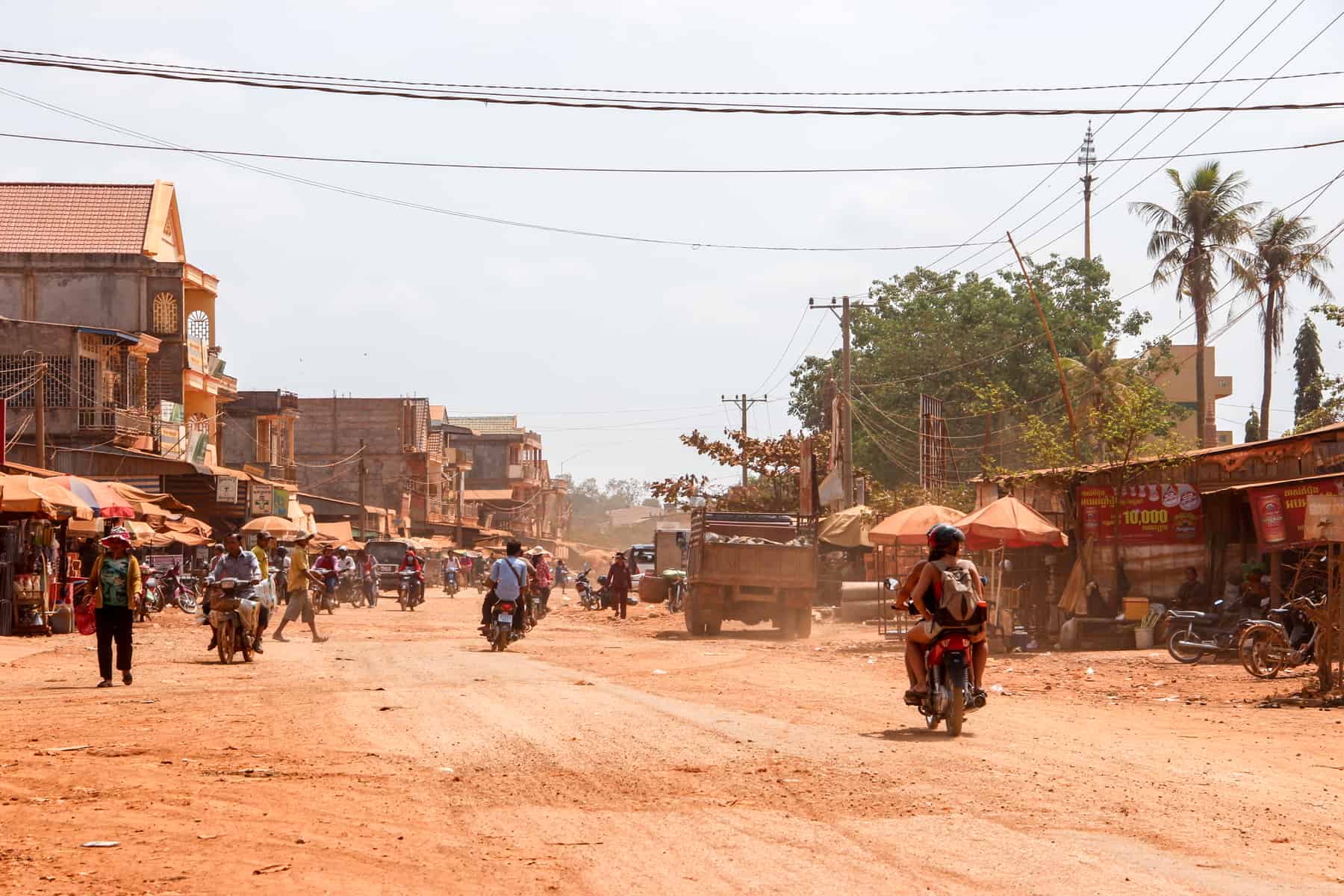Disclaimer: This post contains affiliate links to handpicked partners, including tours, gear and booking sites. If you click through or buy something via one of them, I may receive a small commission. This is at no extra cost to you and allows this site to keep running.
How far do the actions of tourists perpetuate bad practices and how should we be supporting street children in Cambodia?
Street children and child street sellers are a common occurrence here in Siem Reap, with an estimated 24,000 living and working throughout Cambodia. Selling everything from bracelets to roses, many scour the streets past midnight to earn a few dollars to take back home to their families.
But how can we, as tourists, responsibly support the street children in Cambodia, many of which are forced out on the streets to work by their parents?
Contents
The Reality of Street Children in Cambodia
There’s was one girl we all knew in Siem Reap. At 11 years old, we were shocked to find her working at 10:30 pm. Her response was simply: “I’m fine. I don’t need to sleep. I’m out here because I love business”. But did she?
Full of confidence, a great grasp of English, and more clout than an average adult, she had hardened to the life she was born into. She probably never had what we know as a typical childhood, although it’s better for a child street seller to have clout than to fall prey to the various forms of exploitation that occurs here in Cambodia and the corrupt social system.
She never begged, and if you didn’t want to buy something, she would walk away. I would much rather, if I had to choose, give money in an entrepreneurial transaction than give money to a plea and perpetuate the idea of dependency.
But more importantly, I wanedt to support community projects or charities, like the one I worked at, that can support children like her so that they don’t have to be subjected to this endless cycle of school and work. Or, for some, only work.

Street Children in Cambodia – How Do Your Actions Contribute to Bad Practice?
Education Campaigns Make a Difference
The UN-backed campaign called ‘Think Twice’ is telling people not to buy from the children at all since it keeps them on the streets and keeps them at risk from a denial of education, child labour exploitation, sexual exploitation and trafficking.
Having lived in Siem Reap, I see the reality of this daily. Some tourists have good intentions but no concept of the wider implications. But others have complete disregard when it comes to the welfare of these street children.
I remember a time when the aforementioned young girl, her kid brother and a friend looked like they could be extra’s in a music video when they started performing on the street. It entertained the masses, it formed a crowd of spectators and the cameras come out and snap away enthusiastically. They challenged Westerners to a dance-off and some accepted; while others threw money at the kids after like it was the greatest show on earth. Then the majority of the crowd walked away after enjoying the show.
Would you stand by and watch your little brother, sister, niece or nephew perform on the street? I wouldn’t. Every time I saw this it broke my heart. I sat there not knowing what to do. We tried telling them to go home but some of them had no choice but to be out there supporting their parents. The little boy was so overwhelmed one night that he was in floods of tears. His sister told us on another night, around 9 pm, that he was at home sleeping ready for the night’s activities.
Why allow this show to happen? If we didn’t form crowds and encourage it then possibly, just possibly, the children would realise there is nothing to gain from it. Now, they know that it is easy money, and thanks to irresponsible tourists, have been turned into performers.
What is the Solution for Street Children?
An overarching problem is, where else does their ‘income’ come from? On the one hand, selling something is seen as a guaranteed handful of dollars, yet it is probably benefiting an adult more than them. On the other hand, by supporting ‘performance’, you are overshadowing the better notion of ‘business’ (buying something from them) in place of extreme exploitation. In an ideal situation, you wouldn’t give them anything at all.
It’s a terrible situation to witness, and difficult to know what to do.
Trapped by the lack of education of their parents, who know of nothing except hardship and the need to send their children out to work for extra support, the only hope of ending this sad situation is the education of the new generation. Going to school during the day and working in the evening is something we could never imagine putting our kids through in the Western world.
However, education is the only way of breaking the cycle and in the long term, we can only hope that education leads to a stable job and that these children’s children won’t have to lead the same life. Think Twice states: “Instead of giving a short-term $1 to a street kid, support organisations who can educate long-term.”
These are young children. They have no childhood. They have no choice. But as a visitor to this town, you can at least help steer what little choice they have in the right direction.
The question is: What would you do?
Ethical Travel in Cambodia and How to Help
Looking for other ways to help? Read about how to volunteer abroad responsibly and what to know before visiting an orphanage.



Sarah says
Great piece. I have a question; do you think it is suitable to take these children to get them a good meal or is this something that we should avoid?
Becki says
I’ve sometimes shared my food with mums who have babies, but this is a tough call. It again can perpetuate the idea of dependency, yet food is better than money or giving in to begging. I would still say to scope out charities in the area and donate money, or help set up a scheme where street kids are taken for regular meals as a group. There isn’t a right answer, but supporting community options and wider schemes is always the better one.
Kassie says
I was wondering if you had any advice. I’m in Siem Reap and every evening we meet a small boy, probably about 10 years old. He looks as though he is blind in one eye and sometimes he’s a little spaced out (could just be how he is, could be something else). We’ve started buying him food as he’s clearly hungry but we wouldn’t give him cash. He’s not bright, he’s no business man and I’ve been quite vigilant and I don’t think he’s with anyone else. Are there any charities that will help me support him? I’m willing to sponsor him and actively help but I can only find support networks in Phnom Penh. Any suggestions would be appreciated. Thanks
Becki says
There are numerous charities in Siem Reap that you can make contact with. Many cover specific areas, but it is worth asking them to see if they can help or point you in the right direction. Try The Green Gecko Project, New Hope Cambodia, Honour Village, AboutAsia and Feeding Dreams to start with.
susi says
hi becki
yes cambodia is hard if you open your eyes. but for westerners easy to help a little. a few dollars can change so much but travellers have to be careful where they donate. best is to find a local who you can trust and who can help you find a trustworthy institution or do much research on your own.
take care and safe travels:)
susi says
what an article about this though topic. been in cambodia for 3 times in the last 2 years (felt in love with the people and the country at first sight) it hurts to see the kids begging and selling. or the landmine victims. or the old people…..
i think for a change only education is the right way. but easy said when sitting in a country where going to school is mandatory and with a social system. for me i found following solution to deal with: i support small organisation (mostly at the children education sector) that i know personaly. i dont give money to kids or buy from them – but i am never shooting them and mostly you can make the experience how clever and lovely they are when you get in a conversation with them:). for old or crippled people i always have some riels in my pocket.
one day at a bus stop in sisophon there was a man, maybe in his 40s. he was so thin that he remembered me of an concentration camp prisoner. next to him was a lady that selled grilled chicken skewers. i never saw a human being so hungry, if you had seen how he looked at the skewers…….gives me shivers only when i think of it. so i bought some skewers, added 2000 riel and handed that to him. he grabbed my hand, squeezed it softly and smiled shy. back on the bus tears ran over my face but on the other side i felt happy. because i hoped this evening he would go to sleep without an rumbling tumee.
dont know if this is the right way but is there any “right” way for this?
and at least sorry if my grammar etc is not correct – english is not my mother tounge.
Becki says
That’s a really humble and lovely thing to do. I would have felt compelled to do the same. Cambodia is a hard place to deal with when you drill down to the finer details. I salute you for understanding rather than turning a blind eye.